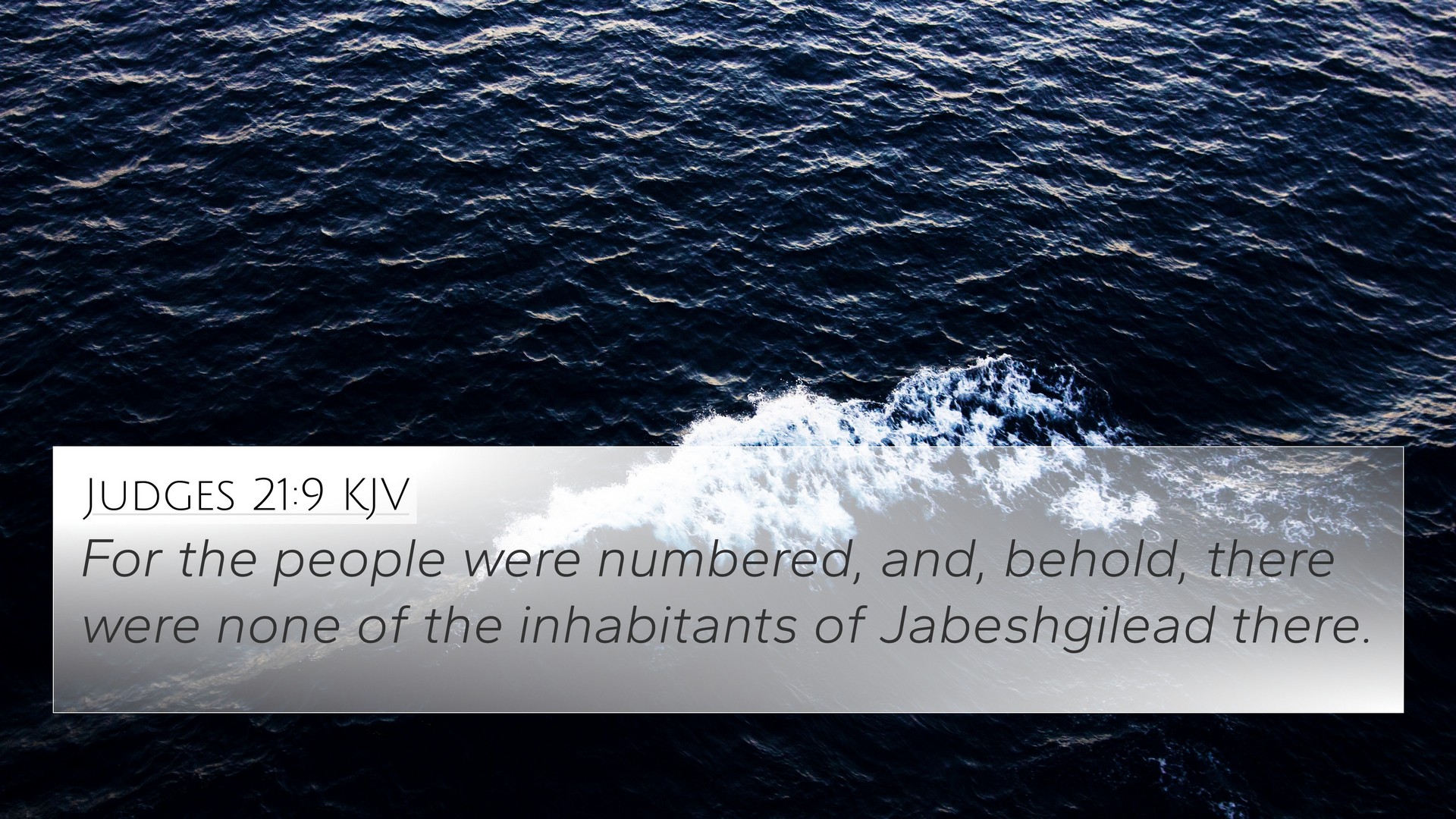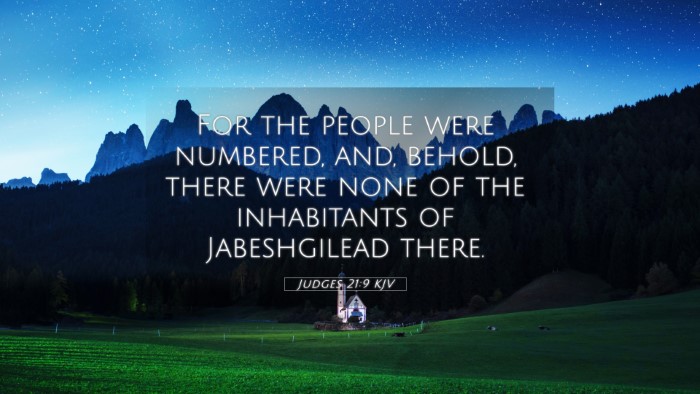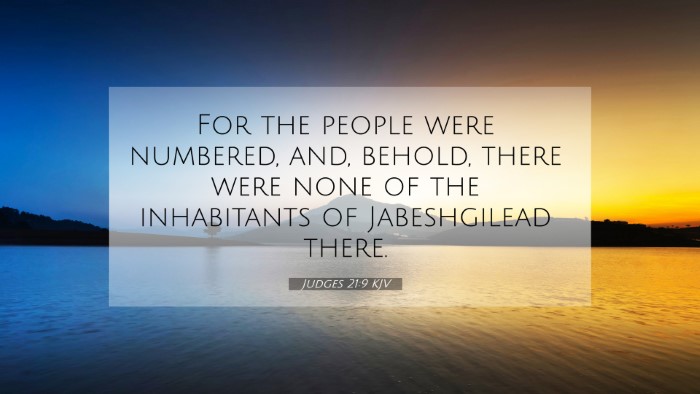Understanding Judges 21:9
Judges 21:9 reads: "For the people were numbered, and, behold, there were none of the inhabitants of Jabeshgilead there." This verse comes at a critical juncture in the narrative where Israel faces a significant crisis regarding the tribe of Benjamin.
Verse Context and Significance
This verse is situated in the aftermath of a horrific civil conflict within Israel, where the tribe of Benjamin has been nearly wiped out due to their grievous sins. The leaders of Israel gather to address this dire situation and are seeking a way to ensure the continuation of the Benjamite line.
Commentary Insights
The following are combined insights from various public domain commentaries:
- Matthew Henry: He emphasizes the tragic consequences of sin and how it affects the community as a whole. The absence of Jabeshgilead's inhabitants indicates a deeper issue of loyalty and participation among the tribes of Israel during this time of strife.
- Albert Barnes: Barnes provides a detailed explanation of the implications of the word "numbered." It conveys a sense of organization and structure as the tribes assess their membership and support. The omission of Jabeshgilead highlights the isolationist tendencies that can occur in troubled times.
- Adam Clarke: Clarke notes that this scenario reflects God’s providence, where the lack of involvement of Jabeshgilead leads to significant ramifications later in the chapter. He discusses the interconnectedness of the tribes and stresses the importance of unity and commitment to the covenant.
Cross-Referencing Biblical Texts
When analyzing Judges 21:9, several Bible cross-references reveal thematic connections throughout Scripture:
- Judges 20:1-3 - This section outlines the assembly of Israel, setting the stage for the events that follow.
- 1 Samuel 11:1-11 - A later event involving Jabeshgilead, providing insight into their historical context and struggles.
- 2 Samuel 2:4 - This reference discusses the anointing of David over the house of Judah, furthering connections to the Benjamite tribe.
- Romans 12:5 - The idea of being one in Christ, akin to how the tribes should have been united.
- Ephesians 4:3 - This verse about unity parallels with the themes of community engagement in Judges.
- Genesis 49:27 - A prophetic mention regarding Benjamin that provides a backdrop to his tribe’s significance.
- Deuteronomy 20:5-7 - The call to arms for those who weren't involved in sin reflects the necessity of participation for the collective good.
Conclusion
Judges 21:9 is a potent reminder of the importance of participation, community, and the consequences of isolation during crises. The commentaries provide insight into both individual and collective responsibility, urging readers to consider how their actions contribute to the larger body of believers.
For those engaging in Bible cross-reference guides, this verse demonstrates the interconnectedness of Scripture, urging readers to explore further links between related passages, particularly in the context of Old Testament history and New Testament application.
Tools for Bible Cross-Referencing
As you study passages like Judges 21:9, utilizing Bible concordances and cross-reference systems can enhance understanding. Here are some effective methods:
- Using a Cross-Reference Bible Study: This enables deeper connections between verses, enhancing your Biblical literacy.
- Identifying Connections in the Old and New Testament: Recognizing how themes repeat across covenants can empower your theological insights.
- Comparative Studies: Engaging with comparative analyses, such as between the Gospels and Pauline Epistles, can illuminate understanding of communal and individual dynamics within Scripture.


